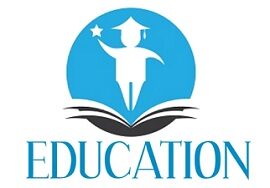
Essential Resources for Psychology Students
Navigating the world of psychology as a student can be both exhilarating and challenging. The right resources can make a significant difference in understanding complex theories, conducting research, and excelling academically. From textbooks to online courses, having access to a variety of tools is crucial. This article will explore essential resources across different categories, including textbooks, online databases, study guides, and more. These resources not only aid in grasping intricate concepts but also provide the support needed to succeed in the field of psychology.
Foundational Textbooks and Journals
Textbooks and academic journals form the backbone of psychology education. They offer foundational knowledge and keep students updated with the latest research. One highly recommended textbook is “The Psychology Book” by DK, which provides a comprehensive overview of key psychological concepts and theories. This book is particularly useful for beginners who need a solid grounding in the subject.
Academic journals are equally important. Publications like the “Journal of Clinical Psychology” and “Psychological Science” are invaluable for staying current with new research findings. These journals publish peer-reviewed articles that cover a wide range of topics, from clinical practices to experimental psychology. Access to these journals can significantly enhance a student’s understanding of the field.
Regularly reading academic journals helps students develop critical thinking skills. By analyzing research methodologies and results, students learn to evaluate the validity and reliability of studies. This skill is essential for anyone planning to conduct their own research or pursue a career in psychology.
Digital Libraries and Databases
In today’s digital age, online databases and libraries are indispensable for psychology students. These platforms provide access to a vast array of research papers, articles, and books. PubMed is a popular database for medical psychology research, offering a wealth of information on topics like neuropsychology and psychiatric studies. It’s a go-to resource for students interested in the medical aspects of psychology.
PsycINFO is another essential database, covering a broad range of psychological topics. It includes articles, books, and dissertations, making it a comprehensive resource for any psychology student. Google Scholar is also worth mentioning, as it provides access to a wide variety of academic papers across different disciplines. This can be particularly useful for interdisciplinary research.
Navigating these databases can be tricky, but with a few tips, you’ll be a pro in no time. Use search filters and keywords to find the most relevant articles. Many databases also offer citation tools, which can help in organizing references for research papers. Mastering these tools can save time and improve the quality of academic work.
Study Guides and Practice Tests
Preparing for exams can be stressful, but study guides and practice tests can make the process more manageable. Reliable study guides like “Barron’s AP Psychology” offer summaries of key concepts, practice questions, and test-taking strategies. These guides are particularly useful for standardized tests and can help students identify areas where they need further study.
Online platforms like Quizlet provide an interactive way to study. Students can create their own flashcards or use pre-made sets to review important terms and concepts. The platform also offers practice tests, which can help students gauge their understanding and readiness for exams. This interactive approach can make studying more engaging and effective.
Using study guides and practice tests can also help reinforce learning. By repeatedly testing themselves, students can improve their recall and understanding of the material. This method, known as active recall, is one of the most effective study techniques. It not only prepares students for exams but also deepens their overall understanding of psychology.
Image source: https://www.freepik.com/free-photo/tourist-woman-sitting-with-bag_1204385.htm
Specialized Resources for IB Psychology Students
For students pursuing the International Baccalaureate (IB) in psychology, specialized resources are invaluable. The IB Psychology Course Companion is a highly recommended resource that aligns with the IB curriculum. It provides detailed explanations of key concepts, along with practice questions and exam tips. This book is designed to help students excel in their IB exams.
Online forums can also be a great resource for IB students. These platforms allow students to connect with peers, share study tips, and discuss challenging topics. Engaging in these communities can provide additional support and motivation, especially during exam preparation. It’s a way to learn from others’ experiences and gain new perspectives.
IB Psychology resources are tailored to meet the specific needs of IB students. They focus on the unique requirements of the IB curriculum, making them more relevant and useful. By utilizing these resources, students can better understand the material and perform well in their exams.
Online Courses and Tutorials
Online courses and tutorials offer a flexible way to supplement classroom learning. Platforms like Coursera and edX provide a range of psychology courses from top universities. For example, Yale’s “Introduction to Psychology” on Coursera covers fundamental topics and is taught by renowned professors. These courses often include video lectures, readings, and quizzes, making them comprehensive and interactive.
Khan Academy is another excellent resource, offering free tutorials on various psychology topics. These tutorials are concise and easy to understand, making them ideal for quick reviews or clarifying difficult concepts. YouTube channels like CrashCourse also provide engaging video tutorials that cover a wide range of psychological theories and practices.
Online courses and tutorials can be particularly beneficial for students with busy schedules. They offer the flexibility to learn at one’s own pace and revisit material as needed. This can be especially helpful for complex topics that require more time to understand fully. By taking advantage of these resources, students can enhance their learning experience and gain a deeper understanding of psychology.
Research Tools and Software
Conducting research is a crucial part of psychology education, and having the right tools can make a significant difference. Statistical software like SPSS is widely used for data analysis in psychological research. It allows students to perform complex statistical tests and interpret the results accurately. Learning to use SPSS can be a valuable skill for any aspiring psychologist.
R is another powerful tool for data manipulation and analysis. It’s particularly useful for students interested in more advanced statistical techniques. R is open-source and has a large community of users, making it easy to find tutorials and support. Mastering R can open up new possibilities for data analysis and research.
For qualitative research, NVivo is an excellent tool. It helps in organizing and analyzing non-numerical data, such as interview transcripts and open-ended survey responses. NVivo allows students to code and categorize data, making it easier to identify patterns and draw meaningful conclusions. Using these research tools can enhance the quality and rigor of psychological research.
Professional Organizations and Conferences
Joining professional organizations and attending conferences can provide valuable opportunities for networking and professional development. The American Psychological Association (APA) is one of the most prominent organizations in the field. It offers student memberships that include access to exclusive resources, such as journals, webinars, and career services. Being a member of the APA can also enhance a student’s resume and professional credibility.
The British Psychological Society (BPS) is another important organization, particularly for students in the UK. It offers similar benefits, including access to publications, events, and professional development opportunities. Membership in the BPS can provide a sense of community and support, as well as valuable resources for career advancement.
Attending conferences, such as the APA Annual Convention, can be an enriching experience. These events offer opportunities to learn about the latest research, attend workshops, and network with professionals in the field. For students, conferences can provide insights into different career paths and help build connections that may be beneficial in the future.
Mental Health and Well-being
Maintaining mental health and well-being is crucial for psychology students. The demands of academic life can be stressful, and it’s important to have resources to manage this stress. University counseling services are a valuable resource, offering support and guidance for students facing mental health challenges. These services often include individual counseling, group therapy, and workshops on stress management.
Mindfulness apps like Headspace can also be helpful. These apps offer guided meditations and mindfulness exercises that can reduce stress and improve mental well-being. Regular practice of mindfulness can enhance focus, reduce anxiety, and promote a sense of calm. For students, this can translate into better academic performance and overall well-being.
Support groups are another valuable resource. They provide a space for students to share their experiences and receive support from peers. Being part of a support group can reduce feelings of isolation and provide a sense of community. It’s important for students to prioritize their mental health and seek out resources that can help them navigate the challenges of academic life.
Final Tips for Success
In summary, having access to a variety of resources can significantly enhance a psychology student’s learning experience. Prioritizing these resources and managing study time effectively are key to academic success. It’s important to explore different types of resources and find what works best for individual learning styles.
Seeking help when needed is also crucial. Whether it’s reaching out to professors, joining study groups, or using online forums, there are many ways to get support. Don’t hesitate to ask for help or clarification on difficult topics. Collaboration and communication can make a big difference in understanding and retaining information.
Finally, stay curious and engaged. Psychology is a fascinating field with endless opportunities for exploration and discovery. By utilizing the resources available and staying motivated, students can achieve their academic goals and develop a deep understanding of the subject.


